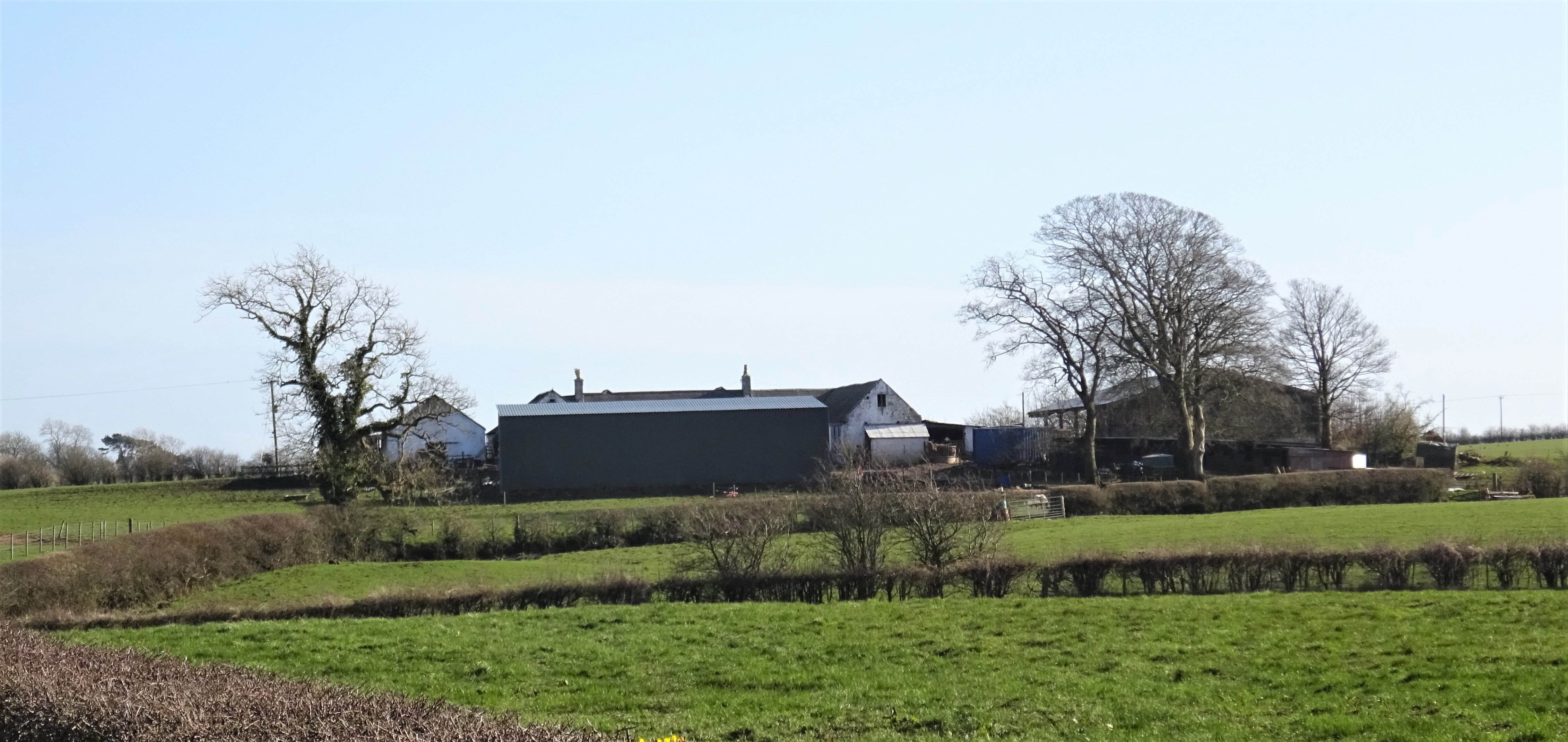 Training, land, support, status, technical and economic feasibility, investment strategy...
Training, land, support, status, technical and economic feasibility, investment strategy...

Becoming a farmer is a long, individual and sometimes collective process. You need to be familiar with the profession and its administrative and local environment.
The aim of this article is to provide an overview of the 8 stages involved in setting up a farm. This is not a fixed order of progress. Each stage introduces you to the various players and elements that are essential to the success of your project.
The 8 stages of setting up a farm :
- Take time to think.
- Get local information.
- Get training.
- Looking for land (if necessary).
- Define technical and economic feasibility.
- Apply for funding (if necessary).
- Set up the administrative side of the business.
- After setting up.
Taking time to reflect
You need time to build and refine your project. If you're looking for a career change and don't have a farming background (NIMA), there are a number of ways of meeting farmers and discovering their world: farm gîtes, markets, agricultural fairs, open days, there's no shortage of farming initiatives. Don't hesitate to be curious, to ask questions - the farmers taking part in these events are keen to talk!
Here are a few examples of interesting sites to visit:
- Accueil paysan: Paid accommodation on a farm.
- Bienvenue à la ferme (Welcome to the farm ): Paid accommodation on the farm.
- De ferme en ferme: Farm visits.
Woofing
Accommodation in exchange for farm work: woofing. Wwoof stands for "World Wide Opportunities on Organics Farms".
It's a very simple way of visiting lots of farms, finding out what you like, what's being done, and getting an idea of the workload and pace of life on the farm. Farms that welcome "wwoofers" are listed on the Wwoof.fr website. Whether you're a guest or a visitor, you need to join the association. Annual membership costs €35 for guests and €25 for visitors.
The principle: 5 hours a day of work on my farm, in exchange for board and lodging. You really need to go with the idea of discovering farm work, not taking a holiday. Accommodation can be as basic as it is very comfortable, so it's important to talk to the hosts beforehand to find out what to expect in terms of accommodation and the type of work expected.
From idea to project" training courses
A number of organisations across France offer support in developing a project.
See the article on training courses: Finding and financing agricultural training courses.
The BPREA
The Brevet Professionnel Responsable d'Entreprise Agricole (vocational diploma in farm management) is the key qualification for becoming a farmer. It lasts from 1 to 2 years and can be taken in the classroom, in a sandwich course or by distance learning. It enables you to fine-tune your project, including periods of work experience on farms.
The Professional Development Adviser (CEP)
This provides individualised support to answer questions about setting up or stopping farming. The advisor will help you to take the necessary steps as you go along, whether or not you are planning to change careers. Mon CEP is a single point of contact, as you can choose your CEP from any of the following organisations: Chamber of Agriculture, Pole Emploi, Chamber of Trades.
Getting informed
There are several ways to find out about the various administrative procedures and players in your department.
Group information meetings
Half a day a month is organised by the Chambers of Agriculture or by local associations supporting small-scale farming.
The Point Accueil Installation (PAI)
One person in each département is on hand to answer all your questions and guide you through the next steps, based on the diagnosis you have made. This is your gateway to starting up your business. You can contact them before or after attending the group information meeting.
Specialist organisations
Trade unions, inter-professional organisations, cooperatives or agricultural associations specific to your sector(market gardening, bee-keeping, livestock farming, etc.) are great resources for finding out the ins and outs of production.
For more information on organic farming, see the article on Setting up in organic farming.
Building your skills
The success of a project depends to a large extent on the person behind it. The more training and professional experience the farmer has, the more secure and shorter the set-up period will be.
Training courses
These short or diploma courses cover topics such as farm management, technical aspects of production, regulations, project costing, marketing, etc.
See the article Finding and financing agricultural training courses for more information.
On-farm work placements
On-farm work placements can range from 2 weeks to several months:
- Observation placements (less than 1 month) as part of your PPP (Personalised Professionalisation Plan), your ADEAR (Association pour le Développement de l'Emploi Agricole et Rural) or with the PMSMP (Période de Mise en Situation en Milieu Professionnel) with Pôle Emploi.
- On-farm work placements (1 to 6 months) as part of your PPP.
- Sponsorship/transfer internships (up to 1 year) as part of a CEFI (Contrat Emploi Formation Installation) with a view to taking over a farm.
Findout more:
- The PPP (Personalised Professionalisation Plan).
- The PMSMP (Period of Practical Work Experience).
- The PAI (Installation Welcome Point).
Getting paid
You can find work as a farm labourer, which allows you to learn while being paid (usually the minimum wage).
Job platforms
From seasonal jobs to permanent contracts, many branches of agriculture have them. Among the sectors that recruit a lot, take a look at vegetable growing and market gardening.
If you have a precise idea of the type of farm you'd like to work on, you can visit the websites of [www.anefa.org l'ANEFA], L'agriculture recrute, Jobagri and Wizifarm, for example.
Associations
Don't hesitate to contact directly the associations corresponding to the sector that interests you. For example, for beekeeping, look at the classified ads for beekeepers' groups. If you're interested in organic production, organic groups also have their own classified ads.
Don't hesitate to contact the PAI for contacts of local groups!
Replacement services
These associations, which are present in every département, hire agricultural agents to replace farmers when they need them. You need to be flexible, a quick learner and quickly self-sufficient: but it's a great way to learn and develop solid skills. Some associations will even pay for training for their agents: servicederemplacement.fr.
Validating your property
There are a number of things to identify. The first thing is to check that your plot of land meets the needs of the project. For example, that there are two sources of water supply for a market-gardening project.
See article onmatching land to project.
There are several ways of cultivating a plot of land, and it's up to you to identify the advantages and disadvantages of each option:
- Buying.
- Renting (also known as farming or leasing).
- Loan (although beware of the lack of security in the medium to long term).
See article on rural leases.
When buying land, there are a number of factors to consider before signing:
Technical and economic feasibility of the farm
This involves making a forecast of investment, financial and human resources and marketing organisation. The aim is really to save time.
How is this done?
There are two parts:
- Identifying your strengths and weaknesses, your market, your competitors, etc.
- The economic forecast.
Several options
- Do it yourself.
- Get help from a farm similar to the one you are considering.
- Get help from an accountant.
- Take a training course (BPREA, Chambre d'Agriculture, ADEAR, AFOCG (Associations de Formation Collective à la Gestion), etc.).
- Personalised support from the Chamber of Agriculture or a local support structure for small-scale farming.
Financing
There are several solutions:
- Public support: DJA (Dotation Jeunes Agriculteurs), Pass Installation, PCAE (Plan de Compétitivité et d'Adaptation des Exploitations Agricoles), etc.
There are a number of criteria to be met, depending on the type of aid you are applying for. For more information, see the article on start-up aid.
- Bank loans.
- Honorary loans.
- Love money, i.e. money from friends and family.
- Participatory crowdfunding.
- Patronage.
Registering
It is only at this stage that your social, tax and legal status is chosen, once the project is well defined.
For more information, see the articles :
- Agricultural social security contributions.
- The different legal forms of farming.
- Choosing your tax system.
Next, to obtain your SIRET number, among other things, you need to contact the Centre de Formalité des Entreprises (CFE). This is a service provided by the Chamber of Agriculture. It is a one-stop shop, with a single point of contact, for registering, deregistering or amending a business or company engaged in agricultural activity.
You only need to fill in one CERFA document, the P0. The CFE then forwards it to INSEE, MSA, TAXES, CUSTOMS, GDS, GREFFE TRIBUNAL DE COMMERCE, DDTM.
After setting up
It is often said that it takes between 2 and 5 years to get your business up and running.
If you have chosen to work with a support organisation while you are setting up, it will probably offer you technical and economic monitoring over 1 to 5 years to help you adjust your business to unforeseen constraints. There is a charge for this service, but it can be reassuring and can save you time and energy in making necessary adjustments. It is compulsory as part of certain subsidies (see article: start-up grants).
Whatever the case, the various technical departments of the Chamber of Agriculture, farming associations and existing advisory structures can provide support in fine-tuning and bringing your farming project to life.
See also:
Summary of the different players involved in your project
As you will have noticed, this article mentions a large number of structures with a variety of acronyms. To help you find your way around, we invite you to watch this video:

